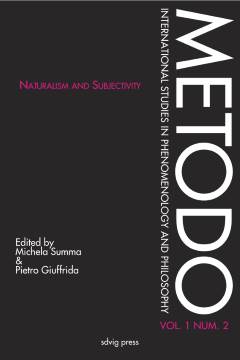Von Pyrrhon zu Husserl
Zur Vorgeschichte der phänomenologischen Epoché
pp. 233-244
Abstract
This paper aims at retracing the genesis of the phenomenological epoché. It is the fundamental question of philosophy itself, namely the search for a truth that goes beyond all conflicts concerning different appearances of or opinions about the world, that motivates the epoché. Presupposing such an understanding of philosophy as search for truth, Husserl’s method of the epoché has its roots in Greek philosophy and is developed as a critical response to Descartes’s radical doubt. Focusing on these roots, this paper will show how Husserl’s epoché comes closer to Pyrrho’s skepticism than to Descartes’s radical doubt. Phenomenology, however, also overcomes skepticism, and more precisely the skeptical claim concerning the radical gap between being and appearances. In this sense, phenomenology shall be considered as unrestrained and radical adherence to the epoché. Thanks to the overcoming of skepticism, phenomenology can be seen as a “third” way to philosophy, beyond both Greek classical thought based on Parmenide’s idea of the co-belonging of being and truth and Descartes’s subjectivism. Considering that divergent opinions are grounded on the different modes of appearances, and are therefore related to different horizons, the paper will conclude with the question of whether the phenomenological method of the epoché allows us to properly address the relationship between the different life-worlds and the one world. Since the world is not only the dimension of display, but also the dimension of concealment, it will be discussed whether the characterisation of the world as universal horizon of all horizons can be considered as a fully appropriate one.
Publication details
Published in:
Summa Michela, Giuffrida Pietro (2013) Naturalism and subjectivity. Metodo 1 (2).
Pages: 233-244
Full citation:
Held Klaus (2013) „Von Pyrrhon zu Husserl: Zur Vorgeschichte der phänomenologischen Epoché“. Metodo 1 (2), 233–244.


